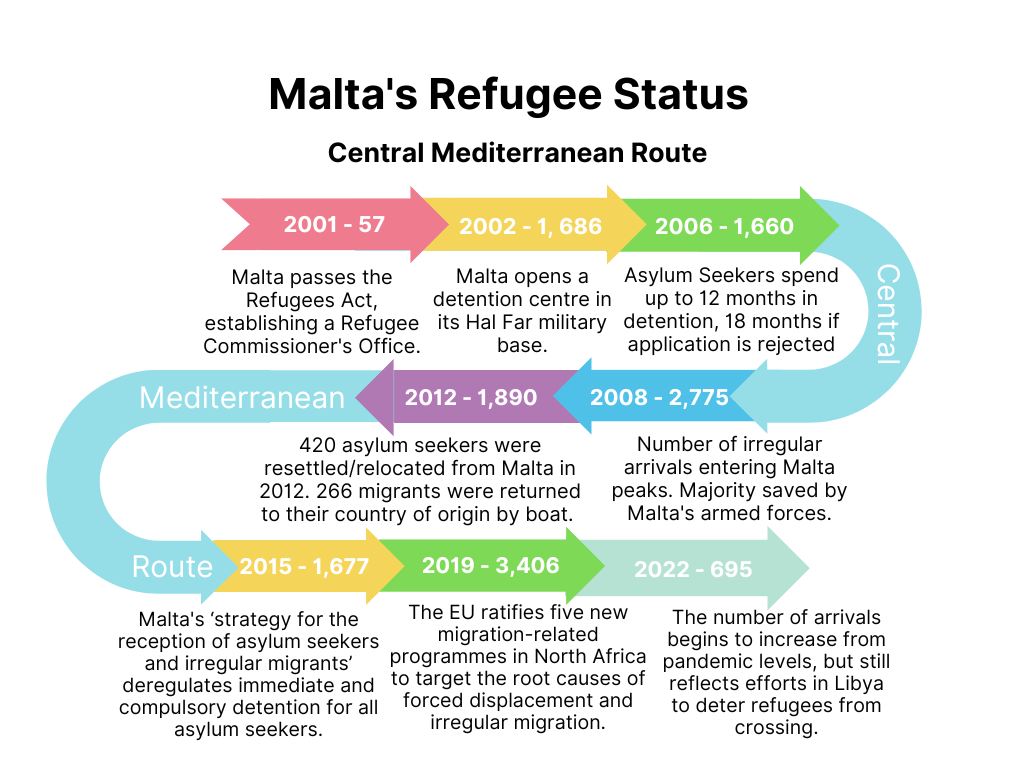
It was not until 2002 when 1,686 refugees crossed into Malta that migration became a priority on the country’s political agenda. That year, Malta received almost a 30-fold increase from 57 in 2001. The surge, a symptomatic consequence of fortifying patrols along the West African route to Spain and the Canary Islands.
Malta, neighbouring North African countries Tunisia and Libya continues to receive a high number of undocumented migrants. The island currently receives the highest number of refugees in proportion to its population, 516,869 as of 2021.
At a disadvantage due to its size, the country still uses detention as its main deterrent, imposing a limit of nine months before transferring refugees to its Open Centres.
Words such as ‘control’, ‘order’ and ‘security’ justify the government’s stance on immigration, arguing that the island is an exception due to its size, high population density and blue borders.
“How can Malta, the smallest EU state, on its own allow in thousands of irregular migrants when all the other EU member states are not ready to share the responsibility of relocating these mostly African irregular migrants within them?
“Every 1,000 irregular migrants who enter Malta are equivalent to a million entering the EU,” says Labour MP Evarist Bartolo in his 2022 Times of Malta Opinion Piece, ‘Grim reality of migration.’
While Italy receives more refugees on average, (72,430 in 2022), the country’s newly appointed far-right government has strengthened patrols to its borders. The country, accused of using extreme measures to deter refugees has blocked ports to vessels, amplified prosecutions for those who resist returns and reinforced interdiction efforts of Libya’s armed forces. Malta subsequently has received more irregular arrivals because of this.
Upon receiving criticism from the Committee for the Prevention of Torture, Malta altered its former 18-month mandatory detention policy, changing its limit to nine months. The centres out of arm’s reach of main cities are located in Marsa, Hal-Far and Hal-Balzan.
Addressing Malta’s tough stance towards immigration Dr Maria Pisani, Former Head of Office for the International Organisation for Migration, explains:
“Malta has done very little to address the arrival of asylum seekers beyond this militarised response. How we address these issues to punish refugees for the shortcomings of the EU and member states is hugely problematic”.
